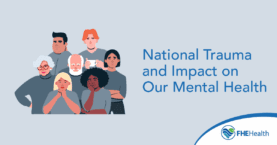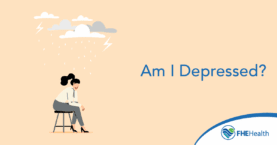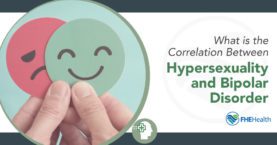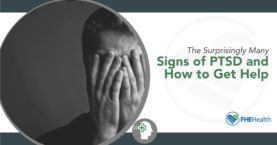Procrastination is something that happens to everyone at some point. Whether it's letting the dishes pile up in the sink, pushing the grocery shopping to another day, or waiting until the last minute to prep for a presentation at work, it's normal to put off things we don't want to do. But when is procrastination a ... Read More
Featured in Mental Health
Is Procrastination a Sign of a Mental Health Issue?
5 Work-Friendly Exercises for Better Mental and Physical Health
Sitting for extended periods of time is linked to an increased risk for many health problems. If the type of work you do for a living involves long periods of sitting, you don't have to accept those increased health risks sitting down. In fact, simply by breaking up your sitting routine with short exercise rounds and ... Read More
What Is the Correlation Between Hypersexuality and Bipolar Disorder?
Bipolar disorder can cause a person to experience extreme mood swings. When someone is in the middle of an emotional high like mania or hypomania, their behavior can dramatically shift. Most people have changes in energy, becoming much more active or talkative. Feelings of euphoria are also extremely common, leading to ... Read More
The Surprising Link Between Migraines and Mental Health
Are you one of the 36 million Americans who suffer from migraines? According to the Migraine Research Foundation, migraines are the third most common health disorder in the world. What you may not know is that there's a strong scientific link between migraines and mental health. Migraines are more than just ... Read More
The Effects of Hair Loss on Self-Esteem and Mental Health
If you've ever brushed your hair and had to do quite a bit of cleanup afterward or been shocked at how much hair is in the drain after wash day, you probably already know how it feels to deal with hair loss. Hair loss, formally known as alopecia, can happen for a variety of reasons, including age, hormonal imbalances, ... Read More
How First Responder Unions Support Mental Health
There has been substantial progress in how the medical community and people in general view mental health issues. Even so, stigma and fear of stigmatization continue to be barriers. Collectively, of course, we now know that one in five people will suffer clinical depression at some point during their lives—and the ... Read More
The Surprisingly Many Signs of PTSD and How to Get Help
PTSD, or post-traumatic stress disorder, can occur after experiencing or witnessing a traumatic event. Some of the symptoms may be more widely known. What many people may not know, however, is that still other symptoms can signify PTSD. In fact, surprisingly many things can be signs of PTSD.... Anger and ... Read More
Help for Phone Separation Anxiety and Fear of Being Offline
It happens to everyone and it can be a source of deep anxiety—they reach for their cell phone and discover their pocket is empty. If you feel lost and anxious without your cell phone, you are definitely not alone. A recent study found the widespread and almost obsessive reliance on cell phones among teens and young ... Read More

















